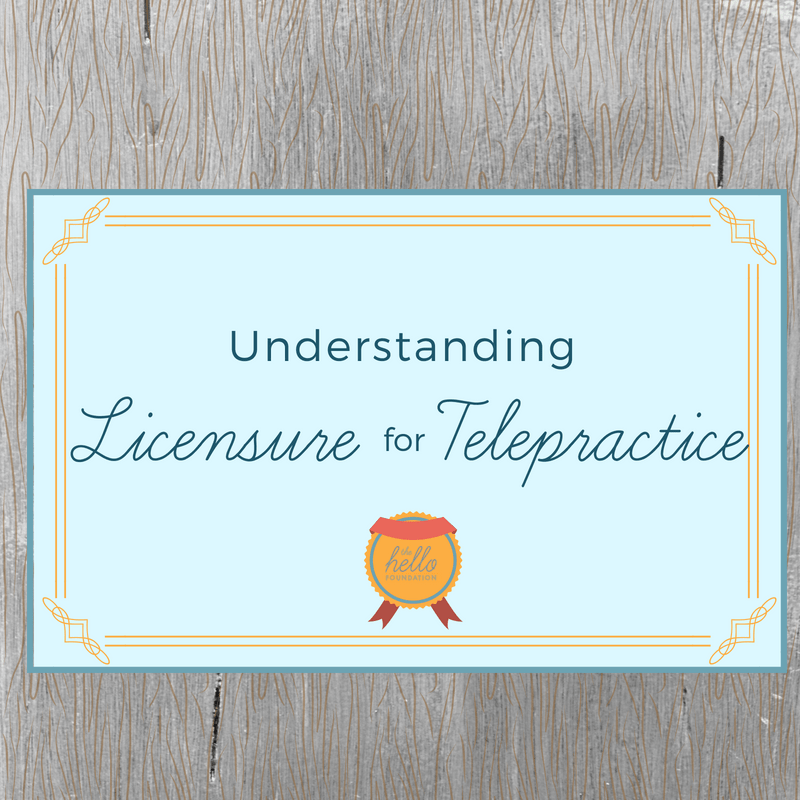Start a conversation with an SLP about telepractice and eventually the conversation will come around to licensure… How many states are you licensed in? How long does it take to get a California license? What’s the best method for tracking PD requirements and renewal dates?
Licensure is a big deal. A license sets you apart from the general public and identifies you as a qualified professional, guided by a code of ethics. Receiving a license is proof that you have the required training and that you can be trusted to make decisions and recommendations. It can feel like clinicians are the bread and butter of the licensing board, paying fees and completing applications and service logs, but a licensing board actually works for the public!
How?

Here in Oregon, similar to other states, the Board of Examiners for Speech-Language Pathology & Audiology is charged with safeguarding the public health, safety, and welfare; protecting the public from unqualified, incompetent, or unethical practitioners; and ensuring the availability of the highest possible quality services.
So what about telepractitioners?
When SLPs are working in a brick-and-mortar clinic, school, or hospital, they to be licensed in the state where their practice is located. It makes sense then that an SLP conducting therapy by telepractice must hold a license in the state where she physically works, e.g. where her office is, as well as in the state where her clients are. This has presented a challenge to telepractitioners since they often move from state to state with the click of their mouse. Requirements and timelines for licensure vary from state to state, not to mention the fees associated with multiple licenses!
ASHA has recently partnered with the Council of State Governments and the Center for Interstate Compacts to work on the development of a licensure compact. This would be an agreement between states to grant a “privilege to practice” in other states based on the home license. So an SLP would be licensed in the state where she lives and would be able to practice in any other state that was a part of the compact without having to meet any additional state-specific requirements (though there still may be a fee). ASHA’s team is in the second year of a 4-5 year process and is currently working with state legislators to introduce legislation in their state to enact the compact. The first states to be included will likely be states that have already passed other licensure compacts like the PT and Psychology Compacts. (Note: the information above was shared by Janet Deppe in an ASHA webchat on 7/31/18)
Do you want to influence the interstate compact process, share your experience with telepractice, and support forward-thinking regulation in your state? Many state organizations have or are in the process of establishing Telepractice Advisory Boards. This can be a great opportunity to stay up to date on important changes and be a part of the discussion. Contact your state licensing board or your state association to find out what you can do.





